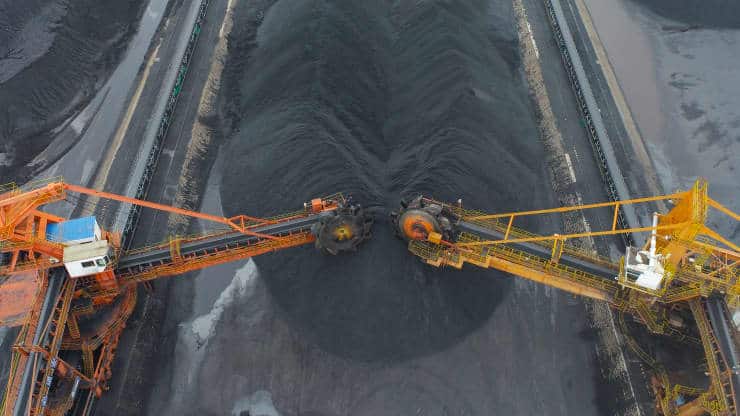

BEIJING — China’s third-quarter GDP grew a disappointing 4.9% as industrial activity rose less than expected in September.
The National Bureau of Statistics said Monday that gross domestic product grew 4.9% in the third quarter from a year ago. That missed expectations for a 5.2% expansion, according to analysts polled by Reuters.
Industrial production rose by 3.1% in September, below the 4.5% expected by Reuters.
“Since entering the third quarter, domestic and overseas risks and challenges have increased,” Fu Linghui, spokesperson for the National Bureau of Statistics, said at a press conference Monday in Mandarin, according to a CNBC translation.
The power shortage had a “certain impact” on normal production, Fu said, but he added that the economic impact “is controllable.”
Many factories had to stop production in late September as a surge in the price of coal and a shortage of electricity prompted local authorities to abruptly cut off power. The central government has since emphasized it will boost coal supply and ensure the availability of electricity.
Monday’s data release also showed businesses were less keen to put money into future projects.
Real estate worries
Fixed asset investment for the first three quarters of the year came in weaker than expected, data from the National Bureau of Statistics showed. It was up 7.3% from a year ago compared to the expected 7.9% figure.
“Investment activities have been subdued as a result of the tight credit conditions,” said Chaoping Zhu, global market strategist at J.P. Morgan Asset Management.
Zhu estimated that fixed asset investment declined by 2.5% in September from a year ago, primarily dragged down by a 3.5% drop in real estate investment.
Real estate and related industries account for about a quarter of China’s GDP, according to Moody’s estimates. In the last 18 months, Beijing has increased its efforts to reduce developers’ reliance on debt.
The struggles of giant developer Evergrande came to the forefront in August, when the company warned of default and subsequently missed payments to investors in its offshore U.S. dollar-denominated debt. China’s central bank said Friday that Evergrande is a unique case and that most developers had stable operations.
On Monday, the statistics bureau’s Fu noted there was a slowdown in the contribution of the real estate sector to the economy in the third quarter.
But he maintained that the impact to overall growth was limited.
The latest data showed consumer spending held up, despite pockets of coronavirus-related restrictions, and a fourth-straight monthly decline in auto sales.
Retail sales beat expectations, rising 4.4% in September from a year ago. The Reuters poll had predicted 3.3% growth.
The urban unemployment rate in September was 4.9%. However, that for those aged 16 to 24 remained far higher, at 14.6%.
China’s growth outlook
Ten major banks tracked by CNBC have trimmed their full year China GDP forecasts as power shortages and efforts to rein in debt-fueled expansion in the real estate sector add to many other pressures on growth, such as sluggish consumer spending.
“China’s once leading growth recovery is losing momentum going into [the fourth quarter],” said Bruce Pang of China Renaissance. He pointed to a number of drags on growth, from sporadic virus cases to China’s efforts to reduce carbon emissions.
“On the regulation side, we think the authorities will better manage the pace and intensity of the regulatory campaign in order to complete major economic and social development targets set for this year and the next 5-10 years,” he said. “Officials can better communicate with the market about the motives behind the regulatory push and telegraph future regulatory hotspots, in our view.”